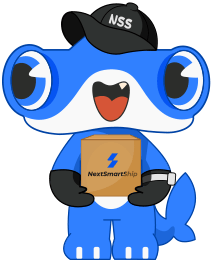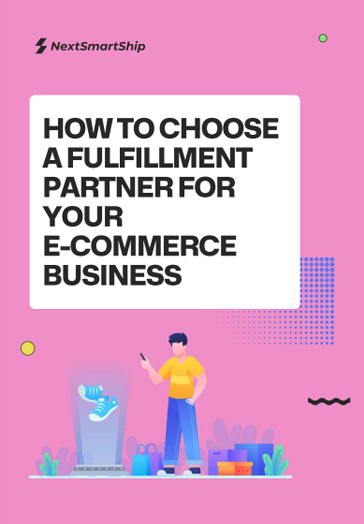To give your brand the best chance of success, you need to do business everywhere, so you can capitalize on the many ways customers will choose to buy from you. Your order fulfillment process must be as flexible as your customers are, so you can offer exceptional service no matter where you meet them.
Direct to consumer fulfillment, also known as D2C or DTC fulfillment, is a synchronised process that coherently delivers your customers’ orders. D2C businesses rose to prominence due to advancements in e-commerce technology and the popularity of social media. They have benefited from the fact that e-commerce has fewer barriers to entry than traditional retail. Since there is little need for physical stores, operational costs are significantly lower for D2C e-commerce businesses than for brick-and-mortar retail stores.

D2C fulfillment strategies
There are two main ways you can establish a D2C logistics network:
- Through a third-party logistics partner
- On your own (in-house fulfillment)
Do it yourself
In-house fulfillment is a method in which you (the retailer) handle all fulfillment processes without external assistance. In this approach, you’ll have to manage storage, picking, packing, returns, and customer services related to order fulfillment.
While in-house fulfillment grants you absolute control over the order fulfillment process, it will consume a significant amount of time and resources as your brand expands, and your fulfillment operations grow increasingly complex. It is best suited to start-ups with low order volumes.
Third-party fulfillment
If you spend a substantial amount of time each week packing and shipping orders and feel you need distribution infrastructures like vans and warehouses, it may be the right time to turn to an external provider.
Fulfillment by Amazon
Amazon’s FBA service requires that you list your items on its website instead of selling them through branded ecommerce platforms such as Shopify and Woo-commerce. Once that’s done, Amazon will pick and pack and ship your orders for you.
Fulfillment by Amazon is a convenient way to handle D2C order fulfillment. However, it has several drawbacks. FBA typically costs a lot more than other fulfillment alternatives and limits your ability to gather customer data. Furthermore, Amazon collects data on your products. If any of them becomes remarkably popular, they may develop a cheaper option and undercut your sales.
Partnering with a 3PL
Contracting a third-party Logistics Company means you’ll hand the entire fulfillment process over to them. They’ll receive your inventory at their fulfillment centers, and take responsibility for picking, packing, shipping, and restocking. While this strategy doesn’t offer as much control as in-house order fulfillment, you’ll retain the ability to monitor your orders.
3PL companies are also flexible, reliable, and cost-efficient. Their experience will allow you to improve customer experience levels through timely deliveries and proper order-handling. Outsourcing to a third-party logistics provider will allow you to focus on growth, brand strategy, and other critical aspects of your business.
Third-party fulfillment is the most popular fulfillment solution among direct-to-consumer brands with medium-high order volumes. They offer several benefits in the form of time savings, high-quality service, and reduced shipping costs. They can also scale their operations, expanding their services as your brand grows bigger.
Get custom solutions from NextSmartShip.
Factors to consider for direct to consumer fulfillment success
As you establish your direct-to-consumer brand, there are three crucial fulfillment factors to consider.
- Process integration
- Processing speed
- Shipping efficiency
Process integration
Whether you choose self-fulfillment or a 3PL, simplifying the ordering process is a crucial first step to e-commerce success. Order integration involves deploying the latest inventory control practices and technologies to make the buying process as seamless as possible.
The first step in the order integration process is to automate the order management process to the greatest extent possible. This means there should be limited manual labor – no more manual batch files, order files, and emails.
You need to set up an order management system that gives your customers a comprehensive and automated view of the inventory in stock, including backorder receipt dates for all the items you have on sale. Your system should also allow customers to make real-time orders, and it should issue instantaneous purchase verifications.
Automating the order management process will eliminate redundancy and minimize the strain on your personnel from performing repetitive, time-consuming tasks. It also ensures rapid order-processing and reduces system downtime, thereby ensuring deliveries occur on schedule.
If you’re working with a third-party logistics company, they should have the capacity to integrate fully with the e-commerce platform you already use or provide a custom solution for you, if required. Order fulfillment is a significant driver of online sales growth – the way customers buy and receive your products is as vital to a positive brand image as the products themselves.
Processing speed
Fast order fulfillment will significantly improve customer perception of your e-commerce brand. The prevalence of social media has allowed consumers to connect in ways previously thought impossible.
Such relationships allow them to discuss who offers not only the highest quality but also the best service. The sooner you fulfill your orders, the happier your customers will be. Besides increasing customer satisfaction, fast order processing and deliveries will encourage them to come back with friends, family, and acquaintances, and increase your supply chain’s efficiency.
If you lack the resources to establish an efficient order processing system, hiring a third party fulfillment company will guarantee your customers shipping times as short as those of the best brands in the business. Your fulfillment partner will efficiently manage each part of the ecommerce fulfillment process for you.
Order tracking: your customers will want to know where their products are during transit. Your fulfillment company will send confirmation messages back to your shopping cart, so you can forward shipping status updates to your customers. You may obtain the service from your fulfillment partner as well. Some fulfillment companies forward tracking updates to customers so retailers can invest their time and resources elsewhere.
Shipping efficiency
To fulfill your customers’ expectations of quality service and your need for sustainability, shipments should arrive on schedule, and at the least possible cost.
How do you attain that kind of customer service for each product your ship each day?
You can start by customizing your shipping strategy to address your clients’ needs. Regardless of your fulfillment choice (third-party or in-house fulfillment services), you need a comprehensive transportation management system capable of automating all non-essential shipping decisions and identifying the ideal carriers and routes to meet delivery expectations.
Order fulfillment may seem complicated, especially for new business owners. However, with proper decision making and the right expertise, it’s not something to worry over. All you need to do is understand the order fulfillment process, evaluate the needs of your business, and choose an approach that suits your business.



